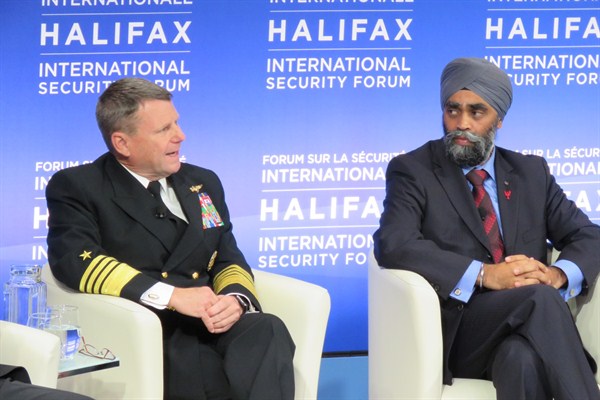HALIFAX, Nova Scotia—The seventh annual Halifax International Security Forum, a mostly right-of-center gathering of mostly democratic states, covered the full suite of security problems confronting the world today. And whether talking about the self-proclaimed Islamic State and the nightmare of terrorism in Western capitals or the long-term challenges of Russian President Vladimir Putin’s aggressive revanchism and China’s increasingly assertive posture in Asia, anxieties were high. Across the spectrum, there was a yearning for more robust American leadership.
The Halifax Forum was created in 2009 with support from Canada’s then-Conservative government as a vehicle to ensure a high-level dialogue with Washington. Despite the myriad of bilateral issues facing the two countries—from extraordinary economic interdependence and related technical cooperation on transportation, energy and natural resources, among other sectors; to their strategic alliance and joint military commands—some in Ottawa have felt a lack of opportunity to focus on the big issues.
The forum is now staffed by a U.S.-based nonpartisan, independent nonprofit organization, but enjoys strong support from the Canadian ministries of Foreign Affairs and Defense. The bipartisan U.S. congressional delegation to the gathering is usually headed by Sen. John McCain, although he could not attend this year; the executive branch was represented by Deputy Secretary of Defense Robert Work and several high-ranking military officers. It would have been helpful to have a senior diplomat to provide more context and insight into U.S. President Barack Obama’s worldview, which took quite a hammering over the three-day meeting.

